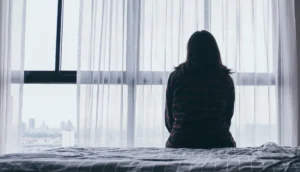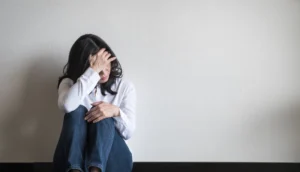An Intensive Outpatient Program (IOP) in mental health is a structured form of treatment that offers intensive care without requiring overnight stays. It serves as a middle ground between inpatient treatment and traditional outpatient therapy, helping individuals manage mental health and addiction issues. This article will cover what is IOP in mental health, who can benefit from them, their key components, typical structure and duration, and how to find the right program.
Key Takeaways
- Intensive Outpatient Programs (IOPs) provide structured mental health care that supports recovery while allowing participants to maintain daily activities.
- Key components of IOPs include group therapy, individual therapy, and medication management, tailored to the unique needs of each participant.
- IOPs are beneficial for individuals transitioning from inpatient care and those needing more frequent support than traditional therapy; they are offered in various specialized formats.
What is an Intensive Outpatient Program (IOP)?
An Intensive Outpatient Program (IOP) is a structured form of mental health care that sits between inpatient treatment and traditional outpatient therapy. These programs are designed to treat a range of mental health and addiction issues by providing intensive outpatient treatment without requiring an overnight stay. These programs aim to help individuals manage mental health challenges while continuing their daily activities, such as work or school.
IOPs play a crucial role in transitioning individuals from inpatient care back to their daily routines. They offer a bridge between the highly structured environment of inpatient treatment and the less intensive support of traditional outpatient therapy. This transition is facilitated through a combination of peer support, coping strategies, group therapy, and individual counseling. These programs provide care while allowing individuals to live at home and engage in their daily activities.
IOPs typically include therapeutic activities such as group therapy, individual therapy, and life skills classes, all aimed at supporting recovery. These programs offer a level of care that is intensive yet flexible, allowing participants to develop new skills and strategies for managing their mental health in a supportive environment.
Who Benefits from an IOP?
IOPs are particularly beneficial for individuals transitioning from psychiatric hospitals or residential treatment facilities. They help patients re-integrate into daily life while still receiving intensive care. People needing more frequent support than weekly therapy sessions find IOPs valuable. For those experiencing moderate to severe symptoms that significantly impact their daily functioning, IOPs offer a structured yet flexible treatment option.
Additionally, IOPs are suitable for individuals who have a supportive network but require additional therapeutic assistance to manage their mental health challenges. These programs often emphasize the importance of support systems, helping participants connect with community resources and peer support groups.
Catering to all ages, IOPs are versatile for various mental health needs.
Key Components of an IOP
The effectiveness of an Intensive Outpatient Program (IOP) lies in its comprehensive approach to mental health treatment. Key components of an IOP include group therapy, individual therapy, and medication management. These elements work together to provide a well-rounded treatment plan that addresses the unique needs of each participant.
Each of these components will be explored in detail next.
Group Therapy
Group therapy is a cornerstone of Intensive Outpatient Programs (IOPs), providing a supportive community where individuals can share their experiences and challenges. This setting fosters peer support, allowing participants to feel understood and less isolated in their struggles. The shared experiences among group members create an environment of empathy and understanding, which can be incredibly healing. Multi-family therapy is often included in group sessions, offering additional perspectives and support systems for those in treatment.
Group therapy enhances recovery by helping individuals develop coping skills and emotional resilience. It also encourages practicing social and communication skills, essential for mental health.
Regular interaction with peers facing similar challenges helps build a supportive community, crucial for long-term recovery.
Individual Therapy
Individual therapy in an Intensive Outpatient Program (IOP) provides personalized attention to address specific mental health challenges. These one-on-one sessions allow therapists to develop treatment plans that cater to the unique needs of each participant. Focusing on personal goals and specific challenges, individual therapy helps participants make significant progress.
The individualized approach ensures that therapy is tailored to the person’s specific situation, making it more effective. Addressing deep-seated issues or developing new coping strategies, individual therapy provides a safe space for exploring mental health challenges and working towards healing.
Personalized care is key to long-term success in managing mental health conditions.
Medication Management
Medication management is a crucial component of Intensive Outpatient Programs (IOPs), especially for individuals with severe mental health symptoms. This process involves regular consultations with a psychiatrist to assess the effectiveness of prescribed medications and make necessary adjustments. Medication-assisted treatment (MAT) is often used to help patients remain sober during treatment without experiencing painful withdrawal symptoms.
Medication management ensures participants receive appropriate medications for their recovery. The treatment team closely monitors progress and makes necessary adjustments to optimize outcomes.
Continuous monitoring and adjustments are vital for stability and long-term recovery.
Different Types of IOPs
Intensive Outpatient Programs (IOPs) come in various forms, each tailored to address specific mental health conditions. For instance, IOPs designed for anxiety disorders often incorporate Cognitive Behavioral Therapy (CBT) techniques to help patients manage their symptoms. PTSD programs may include trauma-focused therapy to address specific traumatic experiences. IOPs for depression often combine medication management with therapeutic approaches to enhance treatment outcomes.
Substance abuse IOPs usually combine group support and individual counseling tailored to addiction recovery. These substance abuse treatment services often encourage participation in 12-step programs alongside the IOP treatment to provide a comprehensive approach to overcoming addiction.
By offering specialized treatment plans, IOPs can effectively address a wide range of mental health challenges, providing participants with the tools they need for recovery.
Typical Structure and Duration of an IOP
IOPs are structured to provide intensive care while allowing participants to maintain their daily routines. Most IOPs run three to five days a week, with each session lasting 2 to 4 hours. This flexible schedule enables participants to continue their regular activities, such as work or school, while receiving treatment.
The length of an IOP can vary from several weeks to three months, depending on progress and needs. IOPs typically combine both individual and group therapy sessions to address various emotional and behavioral challenges.
These programs can be effectively delivered in both in-person and online formats, offering further flexibility. At Back Bay Mental Health, the IOP services are designed to accommodate the needs of students and working professionals, ensuring that everyone can access the care they need.

How to Find the Right IOP
Finding the right Intensive Outpatient Program (IOP) is a crucial step in your mental health journey. Recommendations from therapists or doctors are often the best way to find an appropriate program. Researching and talking to several programs helps find one that fits specific needs. The Substance Abuse and Mental Health Administration (SAMSHA) provides a locator for behavioral health care services, which can help you find IOP options in your area.
Before selecting an IOP, inquire about insurance coverage to ensure the program is financially feasible. Knowing which insurance carriers the IOP accepts and what costs are covered can prevent unexpected expenses and allow you to focus on recovery without financial stress.
Costs and Insurance Coverage
Costs associated with IOPs can vary based on factors like geographic location and program duration. On average, an IOP costs $250 to $350 per day. Urban centers tend to have higher costs than rural areas. The overall cost can also increase with the length of the program, as longer programs typically incur higher fees.
Insurance coverage for IOPs is often available with documented medical necessity. Many insurance plans cover most or all IOP costs, making them more accessible. Some IOP facilities may also offer payment plans to help manage costs, ensuring that financial constraints do not prevent access to necessary treatment.
Back Bay Mental Health Services
Back Bay Mental Health, located in Boston, Massachusetts, is a premier therapy and mental health facility offering a range of services, including IOP for mental health in Boston. These programs are designed to address various mental health conditions, providing comprehensive care that includes group therapy, individual therapy, and medication management.
The IOPs at Back Bay Mental Health cater to individuals with moderate to severe mental health symptoms, offering a structured yet flexible treatment plan that allows participants to maintain their daily routines. With a team of experienced therapists and mental health professionals, Back Bay Mental Health is dedicated to providing compassionate and effective care to support long-term recovery.
IOP for mental health in Boston offers a valuable option for individuals seeking to manage their mental health while maintaining their daily lives. These programs provide a structured yet flexible approach, combining group therapy, individual therapy, and medication management to address a wide range of mental health challenges. IOPs are particularly beneficial for those transitioning from inpatient care, needing more frequent support, or dealing with moderate to severe symptoms.
Choosing the right IOP involves careful consideration of personal needs, recommendations, and insurance coverage. By understanding the costs and benefits of these programs, individuals can make informed decisions about their mental health care. At Back Bay Mental Health, the dedicated team offers comprehensive IOPs designed to support long-term recovery and well-being. Embrace the journey towards mental health with the right support and resources.
Frequently Asked Questions
What is an Intensive Outpatient Program (IOP)?
An Intensive Outpatient Program (IOP) offers structured mental health treatment focused on intensive therapy while allowing individuals to live at home. It typically includes group and individual therapy sessions, along with medication management, to support ongoing daily activities.
Who can benefit from an IOP?
Individuals transitioning from inpatient care, those needing more frequent support than weekly therapy, and those experiencing moderate to severe mental health symptoms can benefit from an Intensive Outpatient Program (IOP). A supportive network enhances the effectiveness of the program for these individuals.
What are the key components of an IOP?
The key components of an IOP are group therapy, individual therapy, and medication management, which collectively create a comprehensive and personalized treatment plan for individuals.
How long does an IOP typically last?
An Intensive Outpatient Program (IOP) typically lasts from several weeks to up to three months, with sessions occurring three to five days a week for 2 to 4 hours each day.
How can I find the right IOP for me?
To find the right Intensive Outpatient Program (IOP) for you, seek personal recommendations from healthcare professionals, research different programs, and verify your insurance coverage. Utilizing resources like the SAMSHA locator can also guide you to suitable options.




